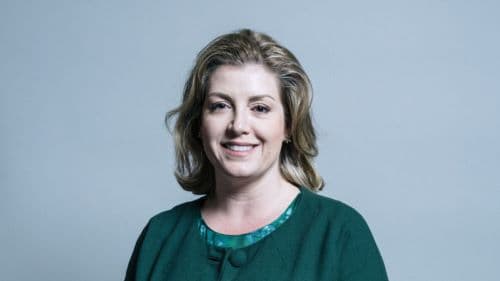Cut taxes quickly to drive growth, say Tory contenders
Tax has been at the centre of the Conservative Party leadership contest so far, with former Chancellor Rishi Sunak defending his tax strategy against other candidates who are keen to cut taxes faster and further.
Ahead of the first TV debate on Channel 4 tonight (Friday), we look at what the five remaining candidates for Conservative Leader (and therefore Prime Minister) have said about tax during the campaign so far.
Former Chancellor Rishi Sunak has hinted at prior clashes with Boris Johnson over tax changes but not given much detail and has warned the other leadership contenders against making unsustainable tax cuts. He told the BBC Today programme: “I will get taxes down in this parliament, but I’m going to do so responsibly because I don’t cut taxes to win elections, I win elections to cut taxes.”
Sunak said his first economic priority if he becomes prime minister is to tackle high inflation. The Times quotes a ‘senior ally of Sunak’ as saying that Sunak will focus on income tax over reducing corporation tax. The source said: “He’s more likely to do personal taxation than corporate taxation. What does the average punter care about? They care about the number at the bottom of their pay slip. They don’t care about corporation tax. Our new rates will not be out of kilter with everyone else, they’re not going to make a material difference.” While Chancellor, Sunak committed to increasing corporation tax, introducing health and social care levy and freezing personal tax thresholds.
Foreign Secretary Liz Truss said she would reverse the planned corporation tax rise and has said she wants to scrap the health and social care levy. At her campaign launch yesterday (Thurs) she vowed to ‘make Britain a high-growth economy over the next ten years through bold supply-side reform’.
Truss promised to cut taxes to help businesses invest in their future, tackle the cost of energy and control government spending. She continued: “We will create new low-tax and low-regulation zones to attract investment in communities up and down our country – creating new hubs for innovation and enterprise. This would revitalise local areas in the same way we regenerated the London Docklands. Families are a vital part of our lives and the crucial building block for a stable society. They don’t just look after themselves but also build communities, charities and even businesses. We will review the taxation of families to ensure people aren’t penalised for taking time out to care for their children or elderly relatives. We will turbocharge the rural economy by focusing on farmers growing food and cutting the pointless regulation that gets in their way.”
Trade minister Penny Mordaunt (photographed below thanks to Parliament UK) said she will increase income tax thresholds for basic and middle-income earners in line with inflation if she wins the Tory leadership vote. In an op-ed for The Telegraph, Mordaunt said she rejected the ‘oversimplification’ of how the current economic challenges are addressed. She outlined that she would drive growth and competition but will pioneer “sound money” and will implement fiscal rules to ensure that debt as a percentage of GDP falls over time.

Mordaunt also stressed the importance of tax simplification, to reduce the ‘bureaucratic burden’ on taxpayers. “Cutting tax is welcome, however this must be accompanied by a programme of economic reform, with a critical focus on competition,” she said. Mordaunt has signaled she will halve fuel duty, to be funded by the increased tax revenues from VAT due to inflation.
Kemi Badenoch, a former minister for local government, faith and communities and equalities, has given the least detail of her potential tax policy. In a speech earlier this week, Badenoch said although she can understand why there have been ‘lots of promises’ to cut taxes, she will not enter into a ‘tax war’. “With economic growth faltering and the highest tax burden in decades, it is right that we ask how we reduce taxes on businesses, families and individuals,” she said.
Badenoch said she is committed to reducing corporate and personal taxes but would not enter into a tax bidding war. She said she would instead be focusing on a ‘system change’ to focus on tackling inflation and the cost-of-living crisis.
Foreign Affairs Committee chair Tom Tugendhat said he is committed to ‘reducing the tax burden’ on people and businesses across the UK. He said: “It is great to see colleagues following my lead in arguing for a reversal of the national insurance rise.” One of the former Army officer's policies would be to cut fuel duty by 10p per litre.
Tugendhat claims his 10-year growth plan will include both targeted and sensible tax cuts along with other measures to stimulate investment, creating jobs and investment in every part of the UK. He believes the universal credit taper should be made more generous so that workers can keep more of the money they earn. He also wants ‘full expensing’ tax breaks for businesses to invest.
Further rounds of voting are expected to take place on July 18 and 19, whittling the candidates down to two finalists. The voting will then be opened up to Tory members over the summer. The party member ballot will close at 5pm on Friday 2nd September and the next leader of the Conservative Party – and Prime Minister - will be announced on 5 September 2022.
By Hamant Verma, CIOT Senior External Relations Officer
